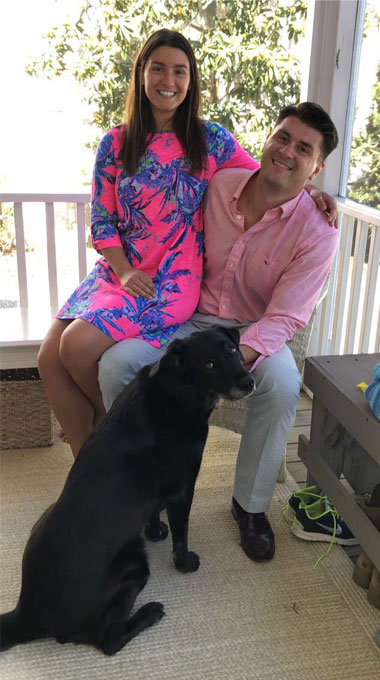Grief Returns When the Nest Empties
Author: Sarah Greene
Over the years, you have worked hard to raise your survivor kids to the best of your ability. Their grieving hearts need extra care and you have frequently put your own grief to the side while doing the job of both parents. You have been so busy with the demands of life and kids that you barely noticed what you needed along the way. In the mix of coping with loss, raising kids, running the household, paying bills, caring for pets, maintaining cars and yard, procuring food, cleaning your home, and a zillion other things, you never took time to consider:
- What happens after all these demands slow down?
- What will I do when the kids leave the nest?
- How will I cope with what is next?
Familiar Feeling of Loss Returns
I will admit, when my kids were young, I occasionally thought it would be a luxury to have this problem: A chance to finally rest, drink coffee while it was hot, and have clear, uninterrupted thoughts. There seemed no end to all the tasks I was taking care of, and it was impossible to carve out time for me. I told my friends that once the kids were up and out, I would dissolve into a pile on the floor, next to my neglected laundry.
I didn't realize I would face the dreaded feeling of loss all over again. It didn't happen overnight. I tried to prepare myself for the impending change but I didn’t know it would look so much like grief when it happened. With both kids off to college, I focused on all the things I could do and explore, but the reality of despair hit me hard. Those familiar nauseous feelings of "loss" and the "never agains" were unwelcome and just seemed so unfair! As widowed parents, we work so hard to guide our kids and help them become self-sufficient. When we accomplish this, though, there is a little irony in realizing that we now have to figure out how to care for ourselves. It is an understatement to say we put ourselves on the back burner all those child-rearing years.
I've learned that you have muscle memory with grief. You remember to employ many of the same tactics and skills you hesitantly learned when you struggled with the loss of your spouse. First, you let yourself feel the feels. You don't avoid the pain but experience it as it comes. This means you adjust to coming home to an empty, quiet house and allow yourself to feel the awkward sadness, which eventually lessens with each return. It will likely catch you off guard just as it used to after your first loss. I remember one night when both of my kids were in college and I was alone. I went upstairs to go to bed and walked down a dimly lit quiet hallway to my bedroom. I suddenly recalled with despair the memory of my jolly, rambunctious, freshly bathed kids who once sprinted wet and naked through the same hallway, screaming with delight as their dad gave chase. There was such light and life and vigor and love and future in that memory! Then … sigh … despair …“never again.” Breathe, cry, breathe. I eventually realized that although sad for a while, this is a great memory I will treasure forever.
 Photo courtesy of Sarah Greene
Photo courtesy of Sarah Greene
Learn to Be Alone Again
As you continue to walk this new empty nest journey, remember to reach out to others for help and support in ways that make sense. Maybe you'll seek out others like yourself, who are dealing with the same thing. You will eventually want to push yourself into unfamiliar and uncomfortable new ventures or old familiar ones that have waited on the sidelines for years. For me, this was going to a new church ALONE. Then taking a class ALONE and then another and another. I started reading for pleasure and learning about things I wanted to pursue. I joined a small group of total strangers, and eventually started to teach and lead a class. I had to remember that I once went to TAPS National Military Survivor Seminar ALONE, albeit with kiddos, so I could continue to do other things completely ALONE.
Each new step and uncomfortable venture, no matter how small, is also victory spelled G-R-O-W-T-H. We are wired to do this, but sometimes our heads get in the way and tell us that we can't or shouldn't. Don't listen to these silly voices! Instead: DO. TRY. EXPLORE. For me, the words that best describe the experience are: empowerment, confidence and strength. The basic message is that there is life after loss … again.
 Photo courtesy of Sarah Greene
Photo courtesy of Sarah Greene
Choose to Become a New You
Grief is a transformative process and it asks you what you are doing with your life. We can choose to remain in the status quo or decide to change. Maybe you have empathy that is bursting within you to help someone else? Become a Peer Mentor or volunteer locally. Perhaps you have always wanted to go back to school? Enroll in a class (make sure you check with TAPS Education Support Services to find out about available scholarships and assistance that you may qualify for). Maybe you want to continue to parent because it is what you know and what you are good at—there are mentoring opportunities out there and kids in need!
Whatever is stirring in your heart—specific interests, TAPS Retreats, hobbies, physical challenges, service, employment, or education—I encourage you to find out and explore. After all, you will be one empty-nest-baby-step closer to finding your new purpose and meaning. Happy finding!
Sarah Greene works on the TAPS Survivor Care Team. She is the surviving wife of Marine Lt. Col. David S. Greene, who was killed in Iraq in 2004. Their children are Jena, 25, and Wesley, 23
